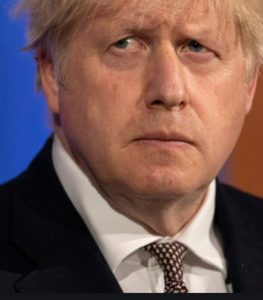UK to introduce draconian migration laws
The UK government has come under fire over its ‘New Plan Immigration’ for which will limit immigration appeals, protests and judicial review.
Human rights campaigners have slammed the plans contained in the proposed ‘Judicial Review Bill’ saying it will prevent immigrants and refugees from challenging deportation orders via judicial review in the UK’s High Court while also overturning earlier legal rulings.
 The UK government says the legislation aims to reduce ‘repeated legal protection claims’ despite acknowledging in the same statement that over half of appeals of immigration appeals are successful.
The UK government says the legislation aims to reduce ‘repeated legal protection claims’ despite acknowledging in the same statement that over half of appeals of immigration appeals are successful.
The policy statement also sets out plans for harsher criminal sentences for those deemed to have entered the UK ‘illegally’.
Under new legislation, ‘illegal’ entry to the UK will impact on how an asylum claim will progress, and asylum seekers arriving by small boat will receive a new temporary protection status, with limited family reunion rights and no recourse to public funds.
This is despite the 1951 United Nations Convention on the Status of Refugees, which recognises people fleeing persecution may have to use irregular means to escape and claim asylum in another country.
In a statement, the UK refugee charity Safe Passage International said: “This Government will slam the door shut on refugees seeking protection here if they push ahead with their New Plan for Immigration”.
“This is not who we are as a country – the plan is cruel and ineffective, only serving to benefit smugglers’ bottom line. Instead, the Government must open safe routes to the UK for people seeking sanctuary, which would prevent dangerous journeys and stop people smuggling.
“Safe routes save lives, reunite families and support refugees to rebuild their lives welcomed by our communities,” the charity said.
The new legislation includes the Police, Crime, Sentencing and Courts Bill, which will increase police powers to place conditions on protests and criminalise those who breach those conditions.
It has already been the subject of protests in the UK.
The broad swathe of proposed new laws will also curtail voting rights in the UK, activists argue, because of plans to pass an ‘Electoral Integrity Bil’l making photo ID mandatory for voting in elections.
The move will disenfranchise many working-class communities, especially ethnic minorities. About eleven million voters, or 24 per cent of the UK electorate, do not own the passport or photographic drivers’ license that will be required to cast a vote.
More than 20 charities and civil society groups have opposed the plans, which they explain will “disproportionately impact the most marginalised groups in society”.
The new laws will also hamper right to protest on university campuses.
A Higher Education (Freedom of Speech) Bill will place requirements on English universities and students’ unions to guarantee “freedom of speech” of staff and visiting speakers.
Individuals who claim their freedoms have been infringed will be able to seek recompense through the courts.
A “director for freedom of speech and academic freedom” will be given the power to carry out investigations and impose sanction through the Office for Students regulator.
Activists claim the measures are intended to crack down on criticism and popular protest against far right figures.
The laws will set out tougher sentences for serious sexual and violent offences by ending automatic release at the halfway point, increasing the maximum prison sentence for assaulting an emergency worker from 12 months to two years, and extend the Sexual Offences Act 2003 to cover abuse of ‘positions of trust’.
UK Law Society President Stephanie Boyce warned “the most controversial proposals would allow unlawful acts by government or public bodies to be untouched or untouchable… . The effect of the proposals would be a fundamental distortion of the protection judicial review is supposed to provide against state action, undermining the rule of law and restricting access to justice”.












